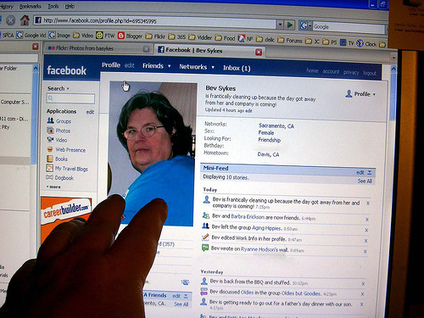5 new studies have revealing answers about the social network
The site we all go to in order to check out what our friends are doing (have you Liked DailyHap yet?—click here!) and post about our own lives has now officially made it into academic papers. You know something has completely changed a culture when research is being done on it: below, we round up five studies about Facebook. Read on.
1. Are you addicted to Facebook?
The Bergen Facebook Addiction Scale has been developed at the Faculty of Psychology, University of Bergen. According to their research, there are six warning signs (listed below). High-risk groups for Facebook addiction include younger people, women, people who are anxious and socially insecure, and extraverts.
Six Warning Signs of Facebook Addiction
The Bergen Facebook Addiction Scale shows that scoring “often” or “very often” on four of the six items may suggest that you are addicted to Facebook.
Answer the following on this scale: (1) Very rarely, (2) Rarely, (3) Sometimes, (4) Often, and (5) Very often:
- You spend a lot of time thinking about Facebook or plan use of Facebook.
- You feel an urge to use Facebook more and more.
- You use Facebook in order to forget about personal problems.
- You have tried to cut down on the use of Facebook without success.
- You become restless or troubled if you are prohibited from using Facebook.
- You use Facebook so much that it has had a negative impact on your job/studies.
2. Eating or spending too much? Blame it on Facebook
A series of studies showed that Facebook usage lowers self-control. Specifically, consumers who focus on close friends are more likely to choose an unhealthy snack after browsing Facebook due to enhanced self-esteem.
Greater Facebook use is also associated with a higher BMI, increased binge eating, a lower credit score, and higher levels of credit card debt!
“Using online social networks can have a positive effect on self-esteem and well-being. However, these increased feelings of self-worth can have a detrimental effect on behavior … This momentary increase in self-esteem leads them to display less self-control after browsing a social network,” write authors Keith Wilcox and Andrew T. Stephen.
3. For best results, post an active profile pic to Facebook
New research reveals that Facebook profile pictures with social cues—like a musician playing their instrument or an athlete competing in their sport—strongly affect the perceived attractiveness of the user. Researchers at the University of Missouri also found that comments left by users on Facebook profile pictures strongly affect the level of perceived attractiveness of the profile owner physically, socially, and professionally.
Seoyeon Hong, a doctoral student who conducted the research, says, “Opinions of other people matter more than the target person’s own self-presentation … These findings show how important it is to present yourself strategically on Facebook. If you want to be perceived positively by people who view your profile page, including friends and potential employers, it is important to include profile pictures with positive social cues.”
4. Facebook usage may not lead to depression
A University of Wisconsin School of Medicine and Public Health study suggests that it may be unnecessarily alarming to advise patients on the risk of “Facebook Depression” based solely on the amount of Internet use.
In contrast to the American Academy of Pediatrics suggestion that Facebook use can lead to depression, this new study found no significant associations between social-media use and the probability of depression.
5. Facebook makes us feel good about ourselves
New research (click here for the full article) from the University of Georgia finds what people may really “like” about social networking is themselves.
“Despite the name ‘social networks,’ much user activity on networking sites is self-focused,” says Brittany Gentile, a co-author of the recent study from UGA.
UGA psychology professor Keith Campbell says, “Editing yourself and constructing yourself on these social networking sites, even for a short period of time, seems to have an effect on how you see yourself.” Several previous studies found increases over the generations in both self-esteem and narcissism. “Social networking sites are a product and a cause of a society that is self-absorbed.”
Image: Some rights reserved by basykes

